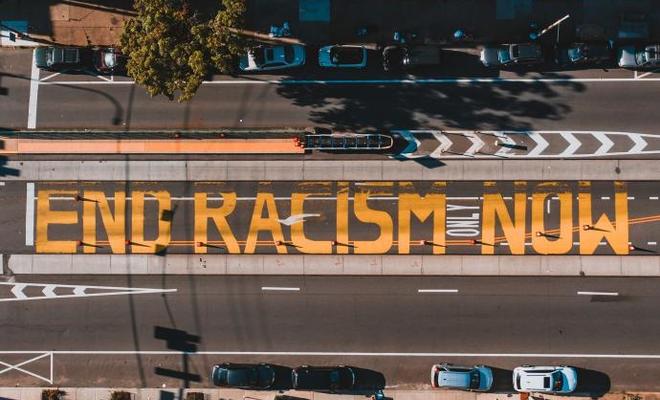City for Everybody - Building Responsible Action for Inclusive Local Communities

The starting point of this project is the understanding that integration of migrant population and anti-racist policies are inherently connected and necessarily need to go hand in hand.
Project will contribute to the implementation of the EU Anti-racism Action Plan, it will focus on intersectional forms of racism and intolerance and include those groups that are most vulnerable at the crossroads of discrimination in each of the involved cities. In this context, the project will also stimulate states to adopt such policies at national level. In addition, the project will stimulate the included capital cities to become visible in the circle of European capitals of inclusion and diversity, and for Ljubljana, Zagreb and Budapest to join ECCAR.
Specific objectives of the project are:
- To empower migrant community and particularly vulnerable groups affected by intersectional racial discrimination by making their needs visible and legitimate, and to support their knowledge of rights and their agency in order to achieve their greater participation, protection and access to services;
- To strengthen capacities of local community, educational community and NGOs working with migrants and other vulnerable groups by increasing their knowledge on structural racism against migrants (with a particular emphasis on intersectional racist discrimination) and their skills to become relevant actors in creating and implementing anti-racism policies;
- To increase the motivation and readiness of local, educational and NGO communities to respond and intervene in cases of racism, xenophobia and intolerance by using a bystanders approach;
- To build coalitions and trust between migrant community, local community (especially local authorities, social and sports entities, cultural institutions), educational community and NGOs to foster anti-discrimination and inclusion inside and outside the institutions;
- To prepare the ground for production and implementation of Anti-racism Action Plans at the local and national level and thus contribute to the implementation of the EU Anti-racism Action Plan.
Needs project addresses:
- Migrant community needs safeguards against intolerance, racism, xenophobia, and discrimination, in particular on grounds of racial or ethnic origin, colour, religion, sexual orientation, gender identity.
- Local communities need tools and sensibility training to enable education and awareness-raising among administrative and expert staff in local administration and services, and among local policy makers. Similarly, the educational community (school staff, principals, teachers, educators, adult education centres) also needs tools and sensibility training to ease their encounters with new migrant members of their community and empower their already existing good practises of integration and intercultural education. NGOs lack capacities and knowledge on EU and national legislation, reporting mechanisms in order to be able to contribute to the creation and implementation of anti-racism policies, and they need stronger capacities and better knowledge in order to be strong advocates for vulnerable groups, and help them with representation and reporting.
- A lack of action can be identified in terms of both prejudice and lack of knowledge and skills, as well as absence of anti-racism action plans at the local and national level in Slovenia, Croatia, and Hungary.
- At the local level of cities Ljubljana, Zagreb and Budapest, a lack of trust between the migrant community and the local community (especially the local authorities and public officials) is identified, while several projects and studies show how important is collaboration of all the stakeholders at the local level to achieve results in both integration and anti-racist policies.
- Local communities need a firm policy ground to address the issues of racism and racist discrimination. There is a need to build (together with stakeholders) the framework and guidelines for anti-racism action plans at the local level as it is advised by the EU anti-racism action plan 2020-2025 document, in order to stimulate states to adopt such policies at national level. Ljubljana, Zagreb and Budapest do not have any anti-racism policies or anti-racism action plan yet. One of the explanations for such a situation was that it is a long and demanding process (for which employees are not skilled enough) which at the end depends on the political will of the city council. Thus, the aim is to connect the efforts of stakeholders in these three cities to draft a proposal for the city action plan, while learning from the cities that already have it: Malmö and Paris.
Implementation and planned activities:
The project starts in April 2023 with a partner meeting in Ljubljana. In the first months, we will conduct research on the state of racism, xenophobia and intolerance in selected local communities (Ljubljana, Zagreb, Budapest, Paris and Malmö). The research will consist of an analysis of policies and relevant sources, as well as interviews and focus groups with representatives of local, migrant, educational and non-governmental communities. We will prepare five national reports and one transnational framework that will be used for further activities and action plans. This will be followed by a work package in which we will design and pilot trainings for representatives of local, educational and non-governmental communities in Ljubljana, Zagreb and Budapest on anti-racist policies.The next work package will include activities on the preparation of an action plan against racism at the city level in Ljubljana, Zagreb and Budapest. We will conduct focus groups and study visits to Paris and the city of Malmö. In the last work package, we will carry out activities for the promotion and dissemination of the results (guided tours around the city, public events, conferences, etc.).
Partners:
- Mirovni institut, Slovenia – coordinator
- Menedek, Hungary
- France Terre d’Asile, France
- Malmö Universitet, Sweden
Project is financed by the Europska Union Program Citizens, Equality, Rights and Values Programme (CERV) 2022-2027.
Photo by: ECCAR





